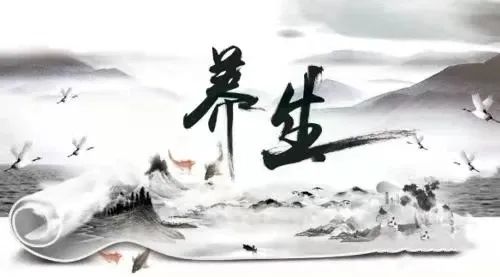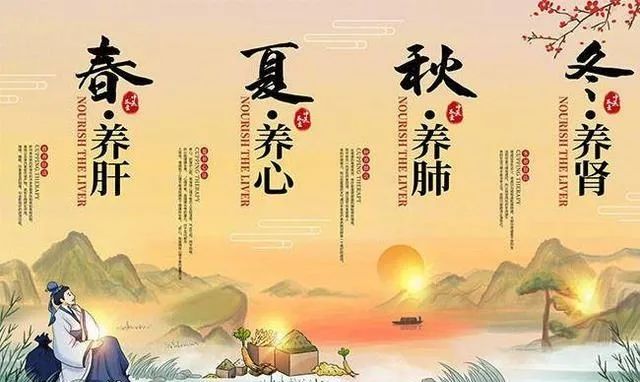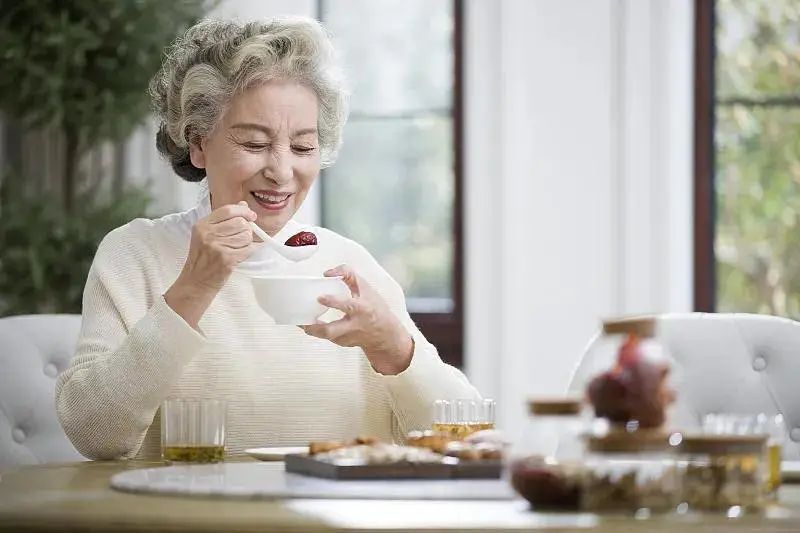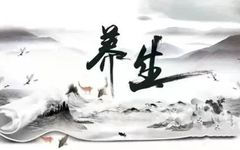 1. What is Health Preservation?
1. What is Health Preservation?
Health preservation essentially means maintaining life. The two key points of health preservation are:
1. Cultivating Correctness: Cultivating correctness means that individuals should engage in normal and regular thinking activities and lifestyles, which is to maintain zhengqi (正气, vital energy).
2. Following Nature: This requires individuals to not only adapt to the seasonal climate changes throughout the year but also to adjust to the surrounding external environment at all times.

 2. What Does TCM Health Preservation Include?
2. What Does TCM Health Preservation Include?
1. Adapting to Nature: This means following the changes in the four seasons and adapting to the surrounding environment, ensuring that the human body is in harmony with nature, which is a fundamental principle of health preservation.
2. Regulating the Spirit: The seven emotions: joy, anger, worry, thought, sadness, fear, and shock, must be balanced. It is essential to maintain healthy mental activities and prevent internal psychological stimuli. In summary, one should cultivate an optimistic mood and an open heart.
3. Maintaining Zhengqi: Qi (气) is the fundamental substance that constitutes and sustains human life activities. The saying goes, “When zhengqi is preserved within, evil cannot invade.”
 3. Natural Health Preservation Methods
3. Natural Health Preservation Methods
1. “Follow the Four Seasons for Longevity”
2. From the Huangdi Neijing (《内经·素问》): “The yin and yang of the four seasons are the root of all things… Going against them leads to disasters, while following them prevents severe illnesses.” 3. From the Ling Shu (《灵枢·本神篇》): “A wise person’s health preservation must follow the four seasons and adapt to cold and heat.”
3. Adapting to nature also includes adjusting to environmental changes and unexpected events.

 4. What Are the Contents of Spirit Regulation in Health Preservation?
4. What Are the Contents of Spirit Regulation in Health Preservation?
1. Peace of Mind: “Being muddled is rare” and “stepping outside the three realms, not being within the five elements”—being at peace in the world, being upright and honest, optimistic and cheerful, and adapting to circumstances are the secrets to peace of mind.
2. Seasonal Spirit Regulation: According to the different characteristics of spring, summer, autumn, and winter, different methods should be employed to keep the spirit lively and upward (spring), joyful and open (summer), calm and reserved (autumn), and hidden and not leaked (winter). This is beneficial for the balance of yin and yang and the harmony of qi and blood.
3. Heart Treatment of the Spirit: One should adjust their emotions at all times and avoid brooding alone, being sad or angry.
4. Emotional Restraint: Being adept at controlling emotions is a reflection of high spiritual cultivation. Properly managing one’s emotions is one of the measures to ensure health.
5. Spiritual Support: As one ages, there is often a sense of loss. However, as long as one’s heart remains youthful and filled with confidence in work and career, having spiritual pursuits can lead to a vigorous old age.
 5. Twenty Guidelines for Health Preservation
5. Twenty Guidelines for Health Preservation
1. Hair Should Be Combed Regularly:
Combing hair several times every morning can disperse wind and fire, clear the eyes and mind. TCM believes: the kidney stores essence, governs bone marrow, and its manifestation is in the hair. Regular combing can promote kidney function and benefit the whole body.
2. Face Should Be Massaged Often:
After washing the face every morning, rubbing the face with both hands seven to eight times can invigorate the spirit. In the morning and evening, massaging the temples, the Fengchi (风池) points at the sides of the neck, and the occipital area can effectively prevent colds.
3. Eyes Should Be Exercised Regularly:
Regularly rotating the eyeballs is very beneficial. Start from the left going up to the right and down, repeating seven to eight times; then from the right going up to the left down, and repeat. Afterward, close the eyes for a short rest before opening them again for clearer vision.
4. Ears Should Be Tapped Regularly:
Using both palms to press the left and right ear gates, interlocking the middle and index fingers, tapping the back of the head to make a sound, and repeating this seven to eight times can enhance hearing and benefit the brain.
5. Tongue Should Lick the Palate:
The tip of the tongue should often lick the palate, which can promote the secretion of saliva. TCM believes that saliva is the water of the tongue, a treasure of the body, and also a digestive enzyme, thus it should be swallowed and not casually spit out.
6. Teeth Should Be Tapped Regularly:
Gently tapping the upper and lower teeth together several times every morning can strengthen the gums and keep the teeth healthy.
7. Mouth Should Be Closed During Bowel Movements:
During bowel movements, one should keep the mouth closed and clench the teeth. This method is highly valued by martial artists and qigong practitioners, as it is a form of internal cultivation and also protects the gums.
8. Breath Should Be Cleansed Regularly:
“Impure air is worse than a sharp blade.” Deep breathing in a fresh air environment is beneficial for health.
9. Body Should Move Regularly:
“Life is in movement.” Without movement, muscles, tissues, and joints can undergo “disuse atrophy.” Therefore, middle-aged individuals should stretch their waists, keep their chests upright, draw in their abdomens, and shake their limbs regularly.
10. Anus Should Be Tightened Regularly:
Regularly tightening the anus is effective in preventing and treating hemorrhoids. The method involves consciously contracting and relaxing the anal sphincter, doing this three to four times in the morning and evening.
11. Body Should Be Bathed Regularly:
Regular sunbathing, water bathing, and air bathing can enhance the nervous and cardiovascular functions, promote metabolism, and improve the body’s adaptability to temperature changes.
12. Feet Should Be Soaked Regularly:
Soaking the feet in hot water before bed is one of the key health tips, beneficial for sleep. After washing, rubbing the Yongquan (涌泉) point on the soles of the feet several times is particularly meaningful for elderly health in winter.
13. Essence Should Be Conserved Regularly:
As the old saying goes: “Do not exhaust your form, do not shake your essence, then you can achieve longevity.” Excessive sexual activity can lead to kidney deficiency and affect physiological functions, promoting premature aging. Therefore, those who can restrain their sexual activity tend to live longer.
14. Qi Should Be Nourished Regularly:
Qi is one of the four major afflictions of life (alcohol, lust, wealth, and qi). Anger raises qi, fear lowers it, overthinking causes qi stagnation, sadness dissipates qi, and shock disrupts qi. Among these, anger is the most harmful. Therefore, it is essential to control it and not indulge in it. Otherwise, great anger harms the liver, can ruin plans, and damage the body.
15. Heart Should Be Open Regularly:
This refers to having an open mind, a relaxed spirit, being optimistic and adaptable.
16. Spirit Should Be Focused Regularly:
This means that attention should be concentrated and not scattered. Work and study should be done with full focus, and outside of work hours, one should engage in hobbies like music, chess, calligraphy, painting, and nature, which are excellent methods for cultivating the spirit.
17. Nutrition Should Be Adequate:
This refers to ensuring that essential nutrients such as proteins, fats, vitamins, and carbohydrates are supplied adequately to maintain the body’s life activities and achieve a balance with consumption; otherwise, health cannot be maintained.
18. Diet Should Be Cautious:
Diet must pay attention to hygiene. Meals should be regular and moderate, avoiding overeating and picky eating. Smoking should be avoided, and alcohol should be consumed in moderation.
19. Daily Routine Should Be Timely:
Daily life should be regular, avoiding excessive lying in bed and oversleeping. Staying up late is not encouraged, and daytime napping should be moderate.
20. Work and Rest Should Be Balanced:
This refers to “having leisure amidst busyness and being busy amidst leisure.” The functional activities of various organs and tissues in the body should maintain a relative balance between excitement and inhibition, tension and relaxation, to avoid affecting health. 
Health preservation and fitness, as well as longevity, have been a common aspiration and a matter of great concern for humanity since ancient times. With the continuous improvement of people’s material living standards and the increasing richness of spiritual and cultural life, health and longevity have become increasingly important global topics.
The aforementioned methods of health preservation and fitness, although limited to a part of TCM health preservation content, contain many successful aspects that rely on perseverance and a consistent attitude, providing us with valuable lessons to learn from.
Health Literacy Reminder
Health literacy guideline number seven: Health foods cannot replace medicines. Health foods cannot replace the therapeutic effects of medicines for diseases. Not everyone can consume them indiscriminately. When choosing health foods, one should be cautious. Health products cannot treat diseases, so they cannot replace medicines and food.
If one has a disease, they should first seek medical attention, have a diagnosis made by a doctor, and receive a treatment plan.
Image source: Internet
Reprinted from: Foshan First People’s Hospital

